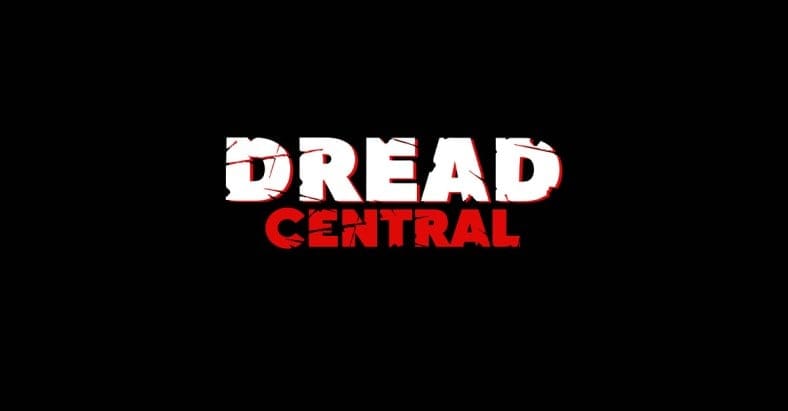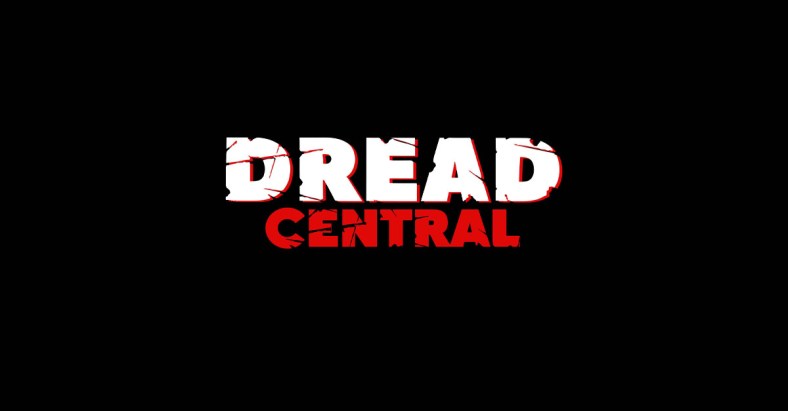Exclusive Tom Holland Interview: “I Became a Director in Self-Defense”

With films like Psycho II, Fright Night, and Child’s Play under his belt, writer/director Tom Holland was one of the most creative and impactful horror practitioners of the 1980s. That’s why he’ll be featured prominently in the upcoming documentary In Search of Darkness, a project that aims to be the definitive retrospective of the genre in that decade. But those of us who truly love and live horror know that Holland has remained a constant since first rising to prominence.

Tom Holland’s Terror Time, for example, is a must-stop internet destination for horror fans. It’s
Related Article: Exclusive Clip of Barbara Crampton in “Definitive” 80s Horror Documentary IN SEARCH OF DARKNESS
When I was first getting my start in horror journalism, Holland and his son Josh (who co-manages Terror Time) brought me on board for daily news and occasional reviews. It was this gig that launched me into a full-time career (eventually landing me here at Dread Central), so I’ve always felt a special bond with the Hollands. That’s why, when offered the opportunity to interview Holland in connection with In Search of Darkness, I jumped at the opportunity.
In addition to thanking him profusely for the start he gave me in horror journalism, Holland and I discussed 1980s horror in general, paying specific attention to his filmography. Read on to hear the filmmaker’s thoughts on horror’s Golden Age, the pride he feels regarding his work on Psycho II, and how he feels about the upcoming Child’s Play reboot at Orion (arriving in US theaters this June). But before we begin, check out the trailer and synopsis for In Search of Darkness.
Synopsis:
Featuring compelling critical takes and insider tales of the Hollywood filmmaking experience throughout the 1980s, In Search of Darkness will provide fans with a unique perspective on the decade that gave rise to some of the horror genre’s greatest icons, performers, directors, and franchises that forever changed the landscape of modern cinema. Tracking major theatrical releases, obscure titles and straight-to-video gems, the incredible array of interviewees that have been assembled for ISOD will weigh in on a multitude of topics: from creative and budgetary challenges creatives faced throughout the decade to the creature suits and practical effects that reinvigorated the makeup effects industry during the era to the eye-popping stunts that made a generation of fans believe in the impossible. In Search of Darkness will also celebrate many of the atmospheric soundtracks released during that time, the resurgence of 3-D filmmaking, the cable TV revolution and the powerful marketing in video store aisles, the socio-political allegories infused throughout many notable films, and so much more.
Dread Central: As someone who was a major player in horror for several decades, what would you say made the 1980s so special?
Tom Holland: I don’t know. At the time, none of us [in horror] knew that the 1980s were going to be so noteworthy. At the time everybody was too busy working and trying to get their next job; I don’t think anyone I knew had any semblance that we’d be talking about it 30-40 years later. It’s pretty amazing, Josh. I see it everywhere now, people referring to the 1980s as the decade where horror came out of the subbasement and went on its way towards being a vibrant and profitable genre. At the time it was considered “slumming” to work in horror.
DC: You’re well-known for helming Fright Night and Child’s Play, but you’re also as much of a writer as you are a director. In addition to the films I just mentioned, you wrote Psycho II and The Beast Within in the 1980s. Which hat do you like wearing best: Writer or director?
TH: Don’t forget Cloak and Dagger!
DC: Never!
TH: I like all of it, but I started directing in self-defense. I had a movie called Scream for Help [directed by Michael Winner and released in 1984] that didn’t turn out so well. I was so in love with the script for Fright Night, it was the most joyous writing experience I ever had. So, after the experience I had with Scream for Help I didn’t trust it in anybody’s hands except my own.
DC: A couple of years ago, we heard that the rights to Fright Night are about to revert back to you. What does the future hold for that franchise?
TH: I’m writing… well, I’m trying to write a sequel as a novel.
DC: Fantastic! Please keep us posted on that. Now, Stephen King was popular in the 1980s and we’re in the midst of a Stephen King renaissance in the 2010s. Can you talk about your experiences working on The Langoliers or Thinner and postulate why the 1980s and Stephen King specifically are so popular again?
TH: When I did the adaptation of The Langoliers he had some notes for me on that. We became
John Carpenter’s Halloween was a big one in terms of influencing the genre; it was the commercialization of slashers. You could lay out a timeline and watch the growing acceptability and intellectual heft that’s been growing for all these decades. And 1980 is when it really opened up. I don’t know why.
DC: Psycho II is becoming something of a cult phenomenon with folks saying it’s one of the best horror sequels ever made. How do you feel about Psycho II and the fact that it’s taken decades for that film to get the accolades it deserves?
TH: That probably makes me more grateful than anything else. That was my breakout film and it was the last gathering of the people who had worked with Mr. Hitchcock on Psycho. Vera Miles came back; our producer Hilton Green was Hitchcock’s first AD; the script supervisor was the same guy who worked on Psycho. They’re all gone now. But that was the thrill of my life and I worked harder on that script than I have any other. And this is interesting: I think it was actually the top movie for the Summer of 1982. It was a huge hit and no one expected it—certainly not the folks at Universal. It started as a cable movie. It’s a terrific movie and that’s what spawned the whole Psycho legacy. Off of my film’s success they did two or three more sequels and a couple of TV series. They’ve never stopped making money off of Psycho since Psycho II.
And you’re right that it was somehow forgotten. But I went to a dinner four or five years ago and every big horror director there. I had American Psycho author Brett Easton Ellis sitting next to me, and Psycho II was voted the best horror sequel ever made. That was the first time I realized it was gaining its own critical cache. That’s something I feel grateful for and I want to support that movie in every way.
DC: I think our readers would probably kill me if we didn’t talk about a little film called Child’s Play! Let’s talk about that long-standing urban legend that Chucky is based on Robert the Doll. True or false?
TH: False.
DC: How did that rumor get started?
TH: No idea.
DC: What’s your opinion on the upcoming Child’s Play reboot in the works at Orion?
TH: I think it’s terrific. I hope they can make the doll scary again!
Related Article: Original CHILD’S PLAY Director Weighs In On Mark Hamill as the New Voice of Chucky
DC: Do you and Don Mancini keep in touch?
TH: I’ve never met him. He wrote the original script, but I’m the one who made it into a slasher. I’m the one who brought suspense in. The reason I did the film was because of Trilogy of Terror, the 1968 TV movie. Remember? In “Amelia”, which is based on Richard Matheson’s short story “Prey”, there was this Zuni doll. That was the first time I knew I wanted to do that. When they did “Amelia” they didn’t have steady cams. Then steady cams exploded with The Shining. I wanted to take the steady cam and put that into a killer doll movie. Child’s Play is built on visual set pieces; in other words, there are cuts in that movie that move things forward with visuals and the minimal amount of dialog. That’s Hitchcock: Very carefully crafted. The opening scene is a hook. You know the doll is evil because you see Charles Lee Ray put his soul into it. Then you give that evil doll to an innocent single mother and 7-year-old boy. The audience knows something the characters in the movie don’t and that’s a ticking timebomb. And that is Hitchcock’s definition of suspense. I learned that by doing Psycho II, because what I did there was I ran every Hitchcock movie, even the silent ones, and I studied the visual set pieces he did. I think I put five of them in Psycho II. I was learning all the time if that makes any sense.
DC: Give Josh my regards the next time you see him. He told me stories about being on sets with you when he was growing up.
TH: You know what, he thought Child’s Play was the stupidest idea he ever heard! He told me “No one’s going to buy this!” But here we are 30 years later and we’re still talking about it.
DC: Yes we certainly are!
Categorized: News
